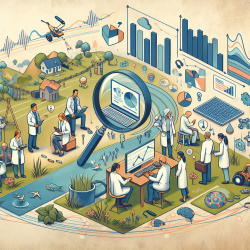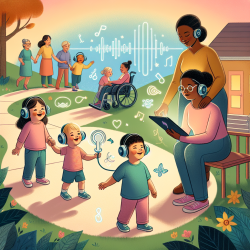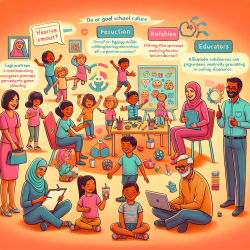Introduction
In the realm of speech-language pathology, especially in the context of online therapy services like those provided by TinyEYE, the importance of data-driven decisions cannot be overstated. The research article "If all planning is local, how are we going to save tomorrow? Ten pragmatic lessons from the field" by Ruzow Holland and Ann Hope offers invaluable insights that can be applied to improve practitioner skills and outcomes for children.
Understanding the Research
The research paper presents ten pragmatic lessons derived from over 40 years of experience in ecological and community land use planning. These lessons integrate legal, ethical, and natural considerations, recognize diverse land ownership, and emphasize the importance of participatory action research (PAR). For practitioners, especially those involved in educational settings, these lessons can be instrumental in enhancing service delivery.
Key Lessons for Practitioners
- Integrating Legal and Ethical Considerations: Understanding the legal landscape and ethical considerations can guide practitioners in making informed decisions that align with institutional policies and community values.
- Participatory Action Research (PAR): Engaging in PAR can empower practitioners to involve stakeholders, including parents and educators, in the therapy process, ensuring that interventions are relevant and effective.
- Using Science to Inform Practice: Leveraging scientific research and data can enhance the effectiveness of therapy sessions, leading to better outcomes for children.
Encouraging Further Research
While the lessons presented in the research are comprehensive, practitioners are encouraged to delve deeper into the topics of PAR and environmental considerations in therapy settings. By doing so, they can develop innovative approaches that are tailored to the unique needs of their clients.
Conclusion
Incorporating the lessons from this research can significantly enhance the skills of practitioners, leading to improved outcomes for children in educational settings. As we continue to face challenges in therapy delivery, especially in online formats, these insights provide a valuable framework for innovation and improvement.
To read the original research paper, please follow this link: If all planning is local, how are we going to save tomorrow? Ten pragmatic lessons from the field.










